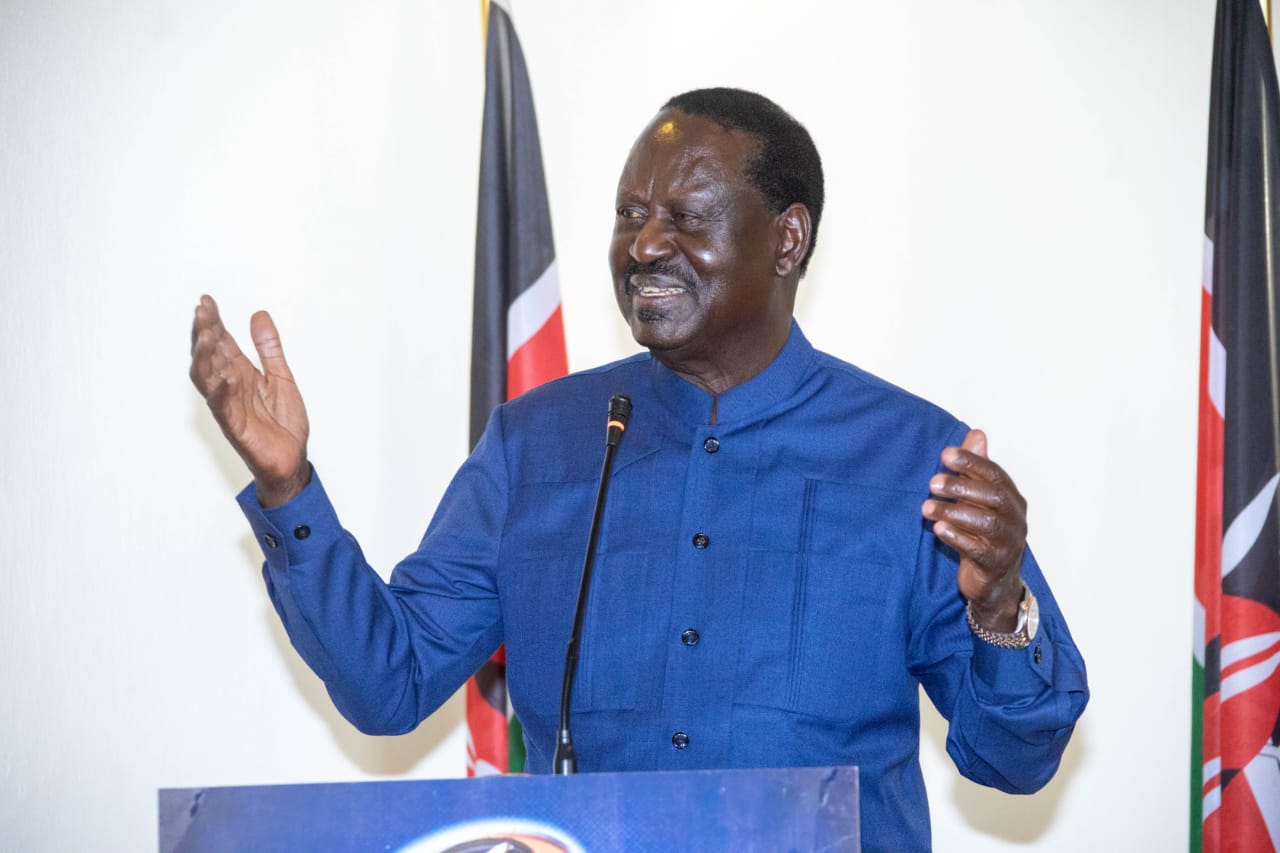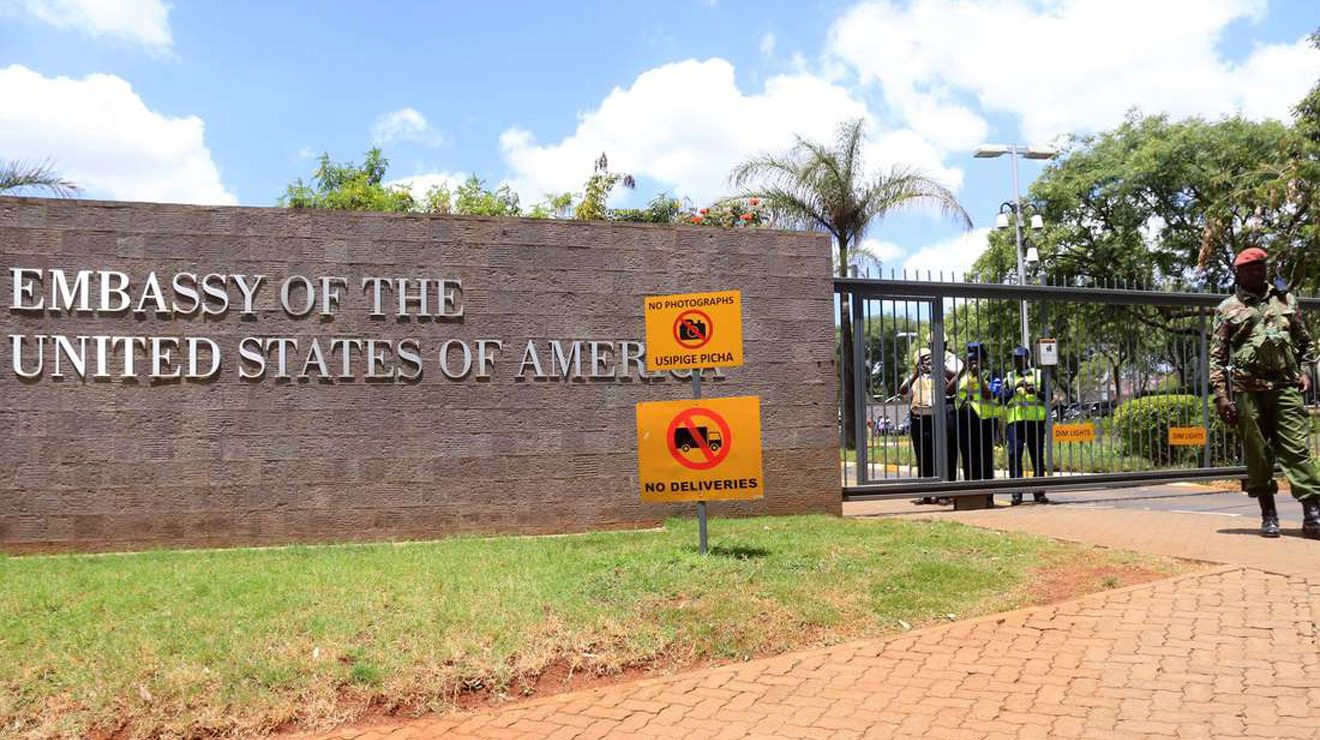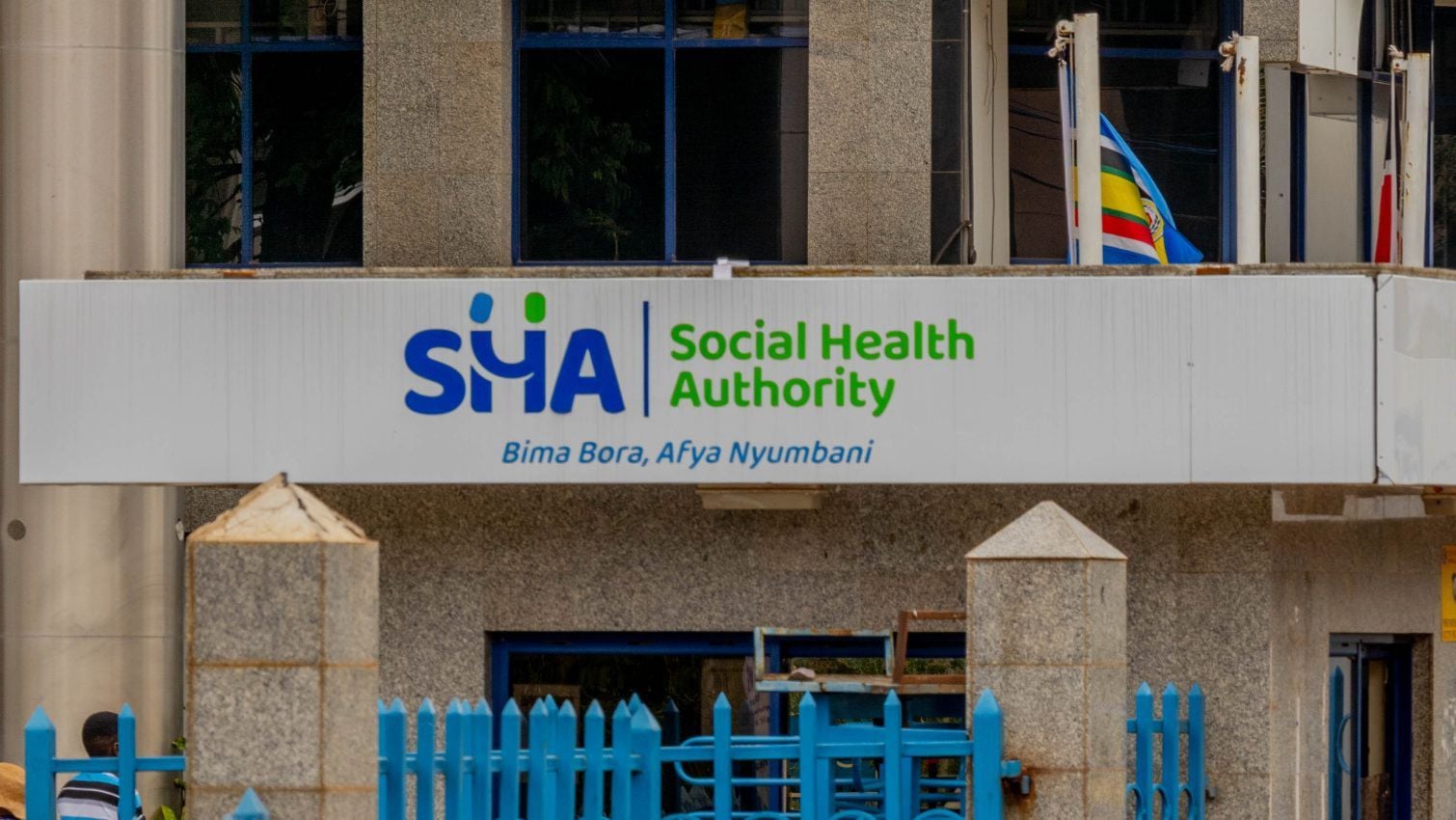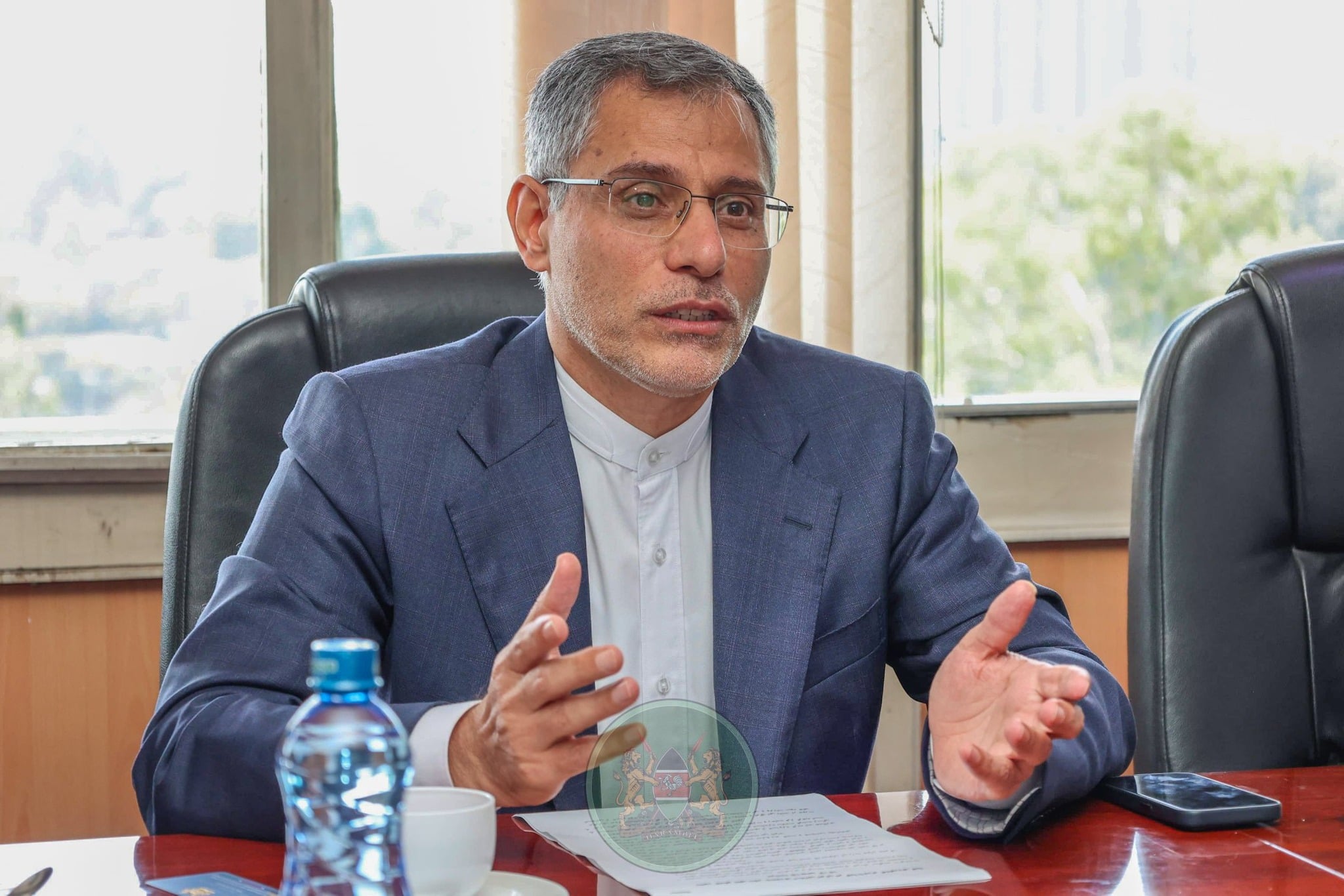Ladies and gentlemen, I have gone round the country meeting and talking to the Jua Kali Sector artisans who are part of the informal economic sector which at last check was numbering more than 16.4 million Kenyans and who consist of more than 86% of the Kenyan workforce that contributes over 34% of our GDP.
We must do something for this sector that forms the backbone of our economy consisting of millions of Kenyans whose skills are not recognized by our formal system.
Apart from addressing issues of decent worksites, more operating space and land for the bulging population, a market for their products and affordable credit, it is critical to recognize and reward them with recognition for the skills that they possess and are constantly refining while passing on to the next generation of skilled labourers.
I, therefore, in response to their request wish to recommend the adaption and implementation of the Recognition of Prior Learning Policy in Kenya (RPL) which is long overdue.
Every morning millions of skilled Kenyans with no papers flock to industrial areas in search of jobs that underpay them terribly for their skills due to a lack of recognized certification
Read More
The tile fitters from the jua kali sector are among the best in the world but are unable to directly secure tile fitting jobs which instead go to middlemen who have papers but no skills, who in turn hire the tile fitters and take the lion share of the payout.
With RPL certification this will change completely with the tile fitters securing the jobs and all the money directly.
Ukienda kwa kwa nyumba mingi huku Kenya kuna tiles. Wale ambao wanafanya hii kazi wako na ujuzi mkubwa sana lakini matajari wanawaambia ya kwamba watapata shilling moja kwa kila tile. Hii haiwezekani.
When ships dock at the coast and require repairs among others, our plumbers, fitters both wood and metals workers have photo albums to show for their work done instead of recognized certificates thus losing the opportunities to the middlemen who have papers but no skills, this will change after the adoption of RPL where they will secure directly paid opportunities in the blue economic sector
(Let mzee tell the story of the Kisumu ship repairs they did with kibaki.)
Our furniture makers like at the renowned Ngong Road furnitures among others make the best furniture as you can attest, but go through brokers to reach the high-end market who sell their products at higher prices and pay peanuts to the artisans which this policy is going to change by the artisans getting fair market value for their furniture works.
Si ngong road pekee. Nenda hapa Mombasa road.Nenda kisii town huko daraja mbili. Iko duka mingi sana mahali ambapo wanauza viti, meza, vitanda. Hizi vitanda vinatengenezwa na Mutiso kutoka kitui. Halafu wanasema zimetoka ngambo. Mutiso analipwa pesa kidogo sana ya kutengeneza viti na ujuzi yake lakini mwenye duka anaenda nyumba na pesa mingi sana.
Thousands of people flock to the jua kali sector car repairers, mechanics and garages where they get satisfactory work but get less for their expertise due to a lack of appropriate recognition and certification.
Renown garages whose owners have the papers but no skills subcontract the jua kali mechanics for very little pay which is going to change with the appropriate certification from the RPL Policy where the mechanics will start earning what is appropriate to them.
Ziwani, kisumu garage, na kila mahali tuko na makanika wengi sana. Hawa jamaa utawaletea gari kutoka ujerumani watafungua watengeneze na wapate shilling elfu moja. Iko wale ambao wanapiga gari rangi , kampuni inapata elfu 120,000 mwenye kupiga rangi anapata shillingii elfu tatu. Hii lazima iishe.
We all know the hundreds of very skilled painters who line in CBD waiting to be contracted by middlemen who get paint contracts but get paid less due to lack of papers.
This is going to change where appropriate market value payments will now go directly to the skilled jua kali painters with the adoption and implementation of the RPL Policy in Kenya.
Utakuta osoro, utakuta kinyanjui amekaa kando hapo barabara ya mfangano. Ukisalimia yeye, badala akupee mkono, atatoa brush ya kupaka nyumba rangi. Huyu jamaa ako na ujuzi mwingi sana, anajua hata kuchanganya rangi, lakini ile pesa atapata kwanza atanunua maziwa kwa sababu rangi inaumiza kifua sana. Huyu jamaa na ujuzi wake lazima aangaliwe.
VI. I have listened to you and I’m convinced that with the adoption and implementation of the RPL Policy, we will have an immediate impact to the millions of skilled Kenyans who have no formal recognition.
I’m aware that the Government in the immediate future will launch the Recognition of Prior Learning (RPL) Policy as a matter of Priority.
My Government will pick from here. Those already occupying the informal sector will be my first priority , those with skills but have since retired, will be called upon to continue offering the skills in the service of their country.
The RPL Policy Framework provides for the recognition of knowledge, skills and competencies regardless of where and how they were acquired.
It is a progression map to facilitate skilled workers' transition from informality to formality
We recognize the contributions of the millions of Jua Kali sector artisans, who have refined skills but no papers.
The sector is going to be among the largest beneficiaries of this policy since it has artisans operating on different skill levels and has absorbed the majority of the new start-ups, retrenches, retirees, school dropouts and unfortunate dismissals from the private sector companies and organizations.
The Jua Kali (Informal) Sector is currently the single largest employer in the country and a source of livelihood for many.
jua kali artisans with decades of occupational competencies have not had a legal or policy framework to guide and promote fairness and equity in the commercialization of their refined skills and hard-earned competencies
RPL is a system that offers hope to the disadvantaged and discouraged; a system that celebrates “what one can do” as opposed to the papers that they possess and a system that brings about flexibility as opposed to conformity.
RPL is a tool for making the unrecognized and undocumented skills visible to contribute to and enhance youth employability, mobility, lifelong learning, social inclusion and self-esteem.
In Kenya, like most developing countries, many workers acquire knowledge and skills through informal and non-formal ways.
However, our education system is currently not geared towards recognizing informal and non-formal learning
With RPL, the youth who have talents and would not wish to pursue higher formal education will have an opportunity to pursue an equally dignified career pathway that is clear and comparable to the alternative academic and formal education and career pathways
RPL will impact positively on the lives of workers and learners of all ages, unemployed people, refugees, migrants and other marginalised groups including millions of Jua Kali Artisans, as important beneficiaries of RPL services.
Hii haitakuwa ni cheti tu. Itakuwa cheti ya maana na ya kuwapa watu wetu ambao wako na ujuzi lakini hawana uwezo wa kushindana na wenye uwezo.
Hii cheti itafanya upate kazi bila kupitia brokers.
Let’s teach them how to fish instead of giving them fish




-1772447580.jpg)

